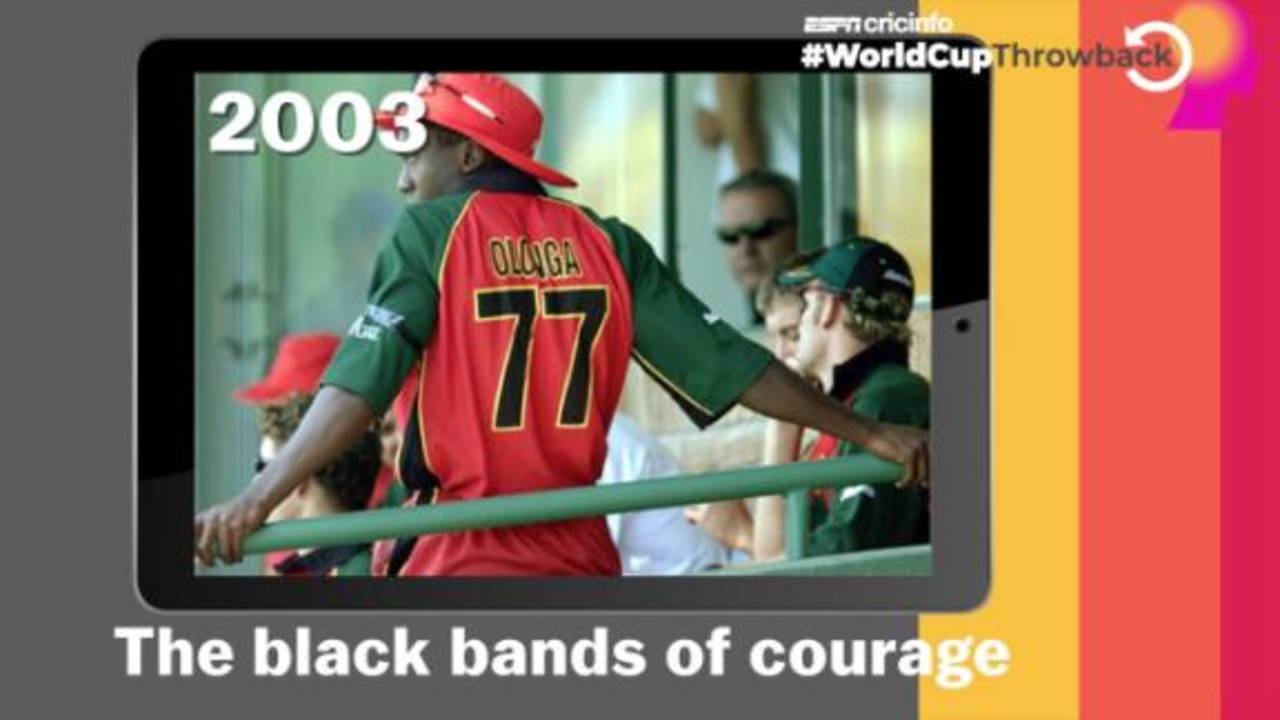Olonga and Flower's black-armband protest
The day in 2003 that two Zimbabweans took a political, and potentially dangerous, stand against their country's government
There was an uneasy peace before the 2003 World Cup got underway in South Africa and Zimbabwe. In the lead-up to the tournament there had been debates about the moral rights and wrongs of staging matches in Zimbabwe, a one-party state with massive political and social issues. The main protests came from England, who in the end boycotted their one game in Harare on security rather than moral grounds, but there were fears that opposition groups might use the media attention surrounding the handful of matches allocated to Zimbabwe to stage protests, and those in turn could lead to more serious trouble. A year earlier, a demonstrator outside an ODI at Bulawayo had been killed. As the tournament itself kicked off, the authorities were probably breathing a collective sigh of relief as the talking gave way to the cricket.
Then, shortly before the start of Zimbabwe's opening match against Namibia, the press were handed a statement from Andy Flower and Henry Olonga in which they announced they would be wearing black armbands to "mourn the death of democracy in Zimbabwe". They stressed their desire to make a silent and dignified gesture. None of their team-mates, with the exception of Flower's brother Grant, had an inkling of what was about to happen. The public were also unaware until, in the 22nd over, Flower walked out to bat wearing a makeshift black armband. Olonga was photographed on the players' balcony sporting his. The point had been made and the Zimbabwe authorities, used to clamping down on such signs of dissent brutally and immediately, had little response given the global spotlight on the event.
Olonga stated he was fully aware of the consequences. "If guys want to take me out they can," he said. "They know where I live." Both players also knew their international careers were over.
Jonathan Moyo, Zimbabwe's notorious propaganda minister, called Olonga an "Uncle Tom" who had "a black skin and a white mask", adding he was "obviously forced into putting his name to a statement which he clearly did not author".
Olonga was dropped, while attempts to do the same to Flower were quickly scotched when his team-mates threatened to strike. Black armbands gave way to black sweatbands, which were also worn by many in the crowd. In the end, both players bowed out after the tournament, Olonga ignominiously kicked off the team bus.
Simon Barnes in the Times called it a "powerful blow for sanity, decency and democracy". In the Daily Telegraph, Donald Trelford slammed the ICC and ECB while praising the players who, he said, "shine out like diamonds in a pile of mud".
